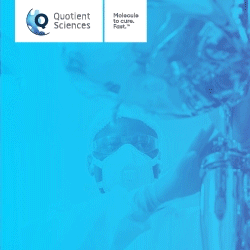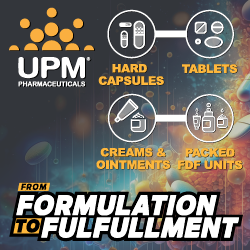GRI Bio Presents Positive Preclinical Data Demonstrating GRI-0621’s Ability to Inhibit Invariant Natural Killer T Cell Activity & Reduce Important Inflammatory & Fibrotic Drivers in Idiopathic Pulmonary Fibrosis
GRI Bio, Inc. recently announced the presentation of positive preclinical data demonstrating its lead program GRI-0621 reduces important inflammatory and fibrotic drivers in Idiopathic Pulmonary Fibrosis (IPF).
The poster, titled Involvement of Type 1 Invariant Natural Killer T Cells in Driving Lung Fibrosis, was presented by Vipin Kumar Chaturvedi, PhD, Chief Scientific Officer of GRI Bio highlighting results of an analysis of bronchoalveolar lavage (BAL) fluid from IPF patients and GRI-0621 in a treatment model of pulmonary fibrosis was presented at the 22nd International Colloquium on Lung and Airway Fibrosis (ICLAF 2024) being held October 12-16, 2024 in Athens, Greece.
Marc Hertz, PhD, Chief Executive Officer of GRI Bio, said “We continue to believe in our therapeutic targets, and this preclinical data provides further helpful insight into the effects of targeting the inhibition of iNKT cell activity in later stages of a preclinical model of IPF. We believe GRI-0621 has the potential to provide significant benefit to IPF patients and we remain focused on its advancement toward interim data and topline data from our Phase 2a biomarker study in the coming quarters.”
Key Highlights
- IPF patients had increased expression in whole BAL pellets of pro-fibrotic factors as Collagen 1-α1, osteopontin and TGF-β, as assessed by qPCR.
- Researchers detected an increase in IFN-γ producing NKT cells in IPF, compared to controls and confirmed iNKT cell phenotype in a second cohort, using an antibody against Vα24-Jα18 of the iNKT TCR.
- GRI-0621 treatment, administered during the fibrotic phase of the bleomycin model of pulmonary fibrosis, improved a majority of inflammatory, fibrotic and pathological features including a reduction in lung injury, myofibroblast activity, collagen deposition and fibrosis.
IPF is a rare chronic progressive pulmonary disease with abnormal scarring of the lung blocking the movement of oxygen into the bloodstream. The architectural destruction of the lung results in breathlessness, significant decline in quality of life and an average untreated survival of 3.5 years from diagnosis. Currently available treatments for IPF are limited with only two approved drugs that come with significant side-effects, limited compliance and no impact on survival1.
GRI Bio is currently advancing its lead program GRI-0621, a small molecule RAR-βɣ dual agonist candidate that inhibits the activity of human iNKT cells, in a Phase 2a, randomized, double-blind, multi-center, placebo-controlled, parallel-design, 2-arm study for the treatment of IPF. Interim data from the Phase 2a biomarker study is expected in the fourth quarter of 2024 and topline results are expected in the first quarter of 2025.
GRI Bio is a clinical-stage biopharmaceutical company focused on fundamentally changing the way inflammatory, fibrotic and autoimmune diseases are treated. GRI Bio’s therapies are designed to target the activity of NKT cells, which are key regulators earlier in the inflammatory cascade, to interrupt disease progression and restore the immune system to homeostasis. NKT cells are innate-like T cells that share properties of both NK and T cells and are a functional link between the innate and adaptive immune responses. Type 1 invariant (iNKT) cells play a critical role in propagating the injury, inflammatory response, and fibrosis observed in inflammatory and fibrotic indications. GRI Bio’s lead program, GRI-0621, is an inhibitor of iNKT cell activity and is being developed as a novel oral therapeutic for the treatment of idiopathic pulmonary fibrosis, a serious disease with significant unmet need. The Company is also developing a pipeline of novel type 2 NKT agonists for the treatment of systemic lupus erythematosus. Additionally, with a library of over 500 proprietary compounds, GRI Bio has the ability to fuel a growing pipeline.
Total Page Views: 1970












